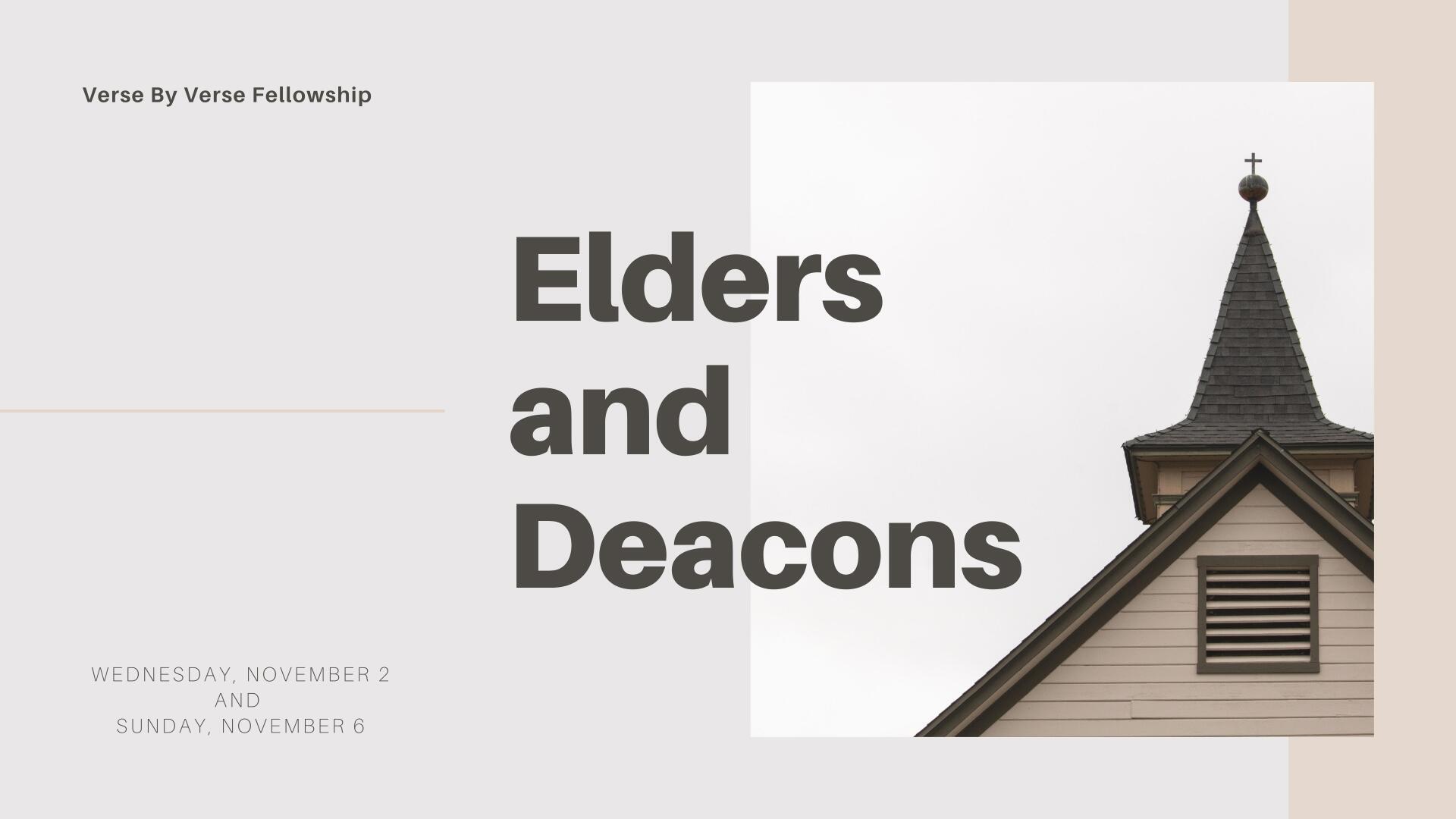Sunday Service 9am & 11am
Wednesday Service 7pm
(210) 920-6502
551 E Nakoma St.
San Antonio, TX 78216
Join a small group to study this sermon with like-minded believers.
1 Peter Introduction
LISTEN. STUDY. APPLY
Video
Audio
Manuscript
Welcome to the first week of our new study of the New Testament book of I Peter...I’m excited and privileged to get us started on this journey through this wonderful book...
Goal for tonight is to get well acquainted with this book...gain an understanding of the context of the book, examine what we know about Simon Peter, the author of the book, who the original audience was and what the book meant to them, the timing of the writing of the book in the context of the first century, the reason, from a human point of view, that Peter would choose to write this first letter, and most importantly, the flow of thought from the beginning of the epistle to the end, including the themes Peter explores and why he addresses them in the setting of the first century church
As we begin, I would bet this group has already read the book in preparation for tonight...I would encourage you to read it again this week, perhaps a chapter or two per day, or maybe the entire book once or twice in the week, to really get this text firmly in your thoughts...if you want to begin a more in-depth study of the book along with reading it, I think it would be helpful for you...there are many good online resources available for free...one of my favorites is biblegateway.com, which gives you free access to 231 online versions of the text of the Bible in 74 languages, dictionaries, concordances, encyclopedias, and commentaries, among other resources...
It’s easier than ever before to do in-depth study with resources you can find online...and books are still a great option, if you want to invest in those...but I think this widespread availability needs to be tempered with a warning...not everything you can find online is true; look carefully to assess if the website or the resource is a legitimate one...some will come from questionable sources, even false teachers; and I suggest you closely examine what you read to pick up on the slant the writer may be taking...if you’re reading something other than a legitimate translation of the Bible – a commentary, a paraphrase of the Bible like “The Message” or the Living Bible, or even the study notes or footnotes in a study Bible – be cautious and a little bit skeptical until you’ve seen enough to assure you that whoever is writing it is coming from a position of actual Bible-believing scholarship...over time, I’ve read and studied enough from enough different sources to detect truth and falsehood when I read it, and you probably have as well...keep comparing what you read to the book of the Bible you’re reading – I Peter, for this study – and to the entirety of the Scripture to ensure that the word of God is being rightly handled and divided...
I recommend you even read the preface of any translation...read the list of translators and editors...see where they minister and teach...and you should find a description of the approach the translators took with the original texts...that will tell you if a translation is going for word-for-word accuracy, like the NASB or the ESV, or a thought-for-thought understanding, an approach the NIV translators call “dynamic equivalence” – both can be useful at times, but it helps to know how the translators came to the text...
But at all times, keep Acts 17.11 firmly in mind...
Now these Jews were more noble than those in Thessalonica; they received the word with all eagerness, examining the Scriptures daily to see if these things were so.
Do you have any resources you would recommend?
Let’s begin to examine this profound book...
First we’ll examine the place of this book in the context of the New Testament...
The New Testament, like the Old Testament, has books that can be grouped together, and were often circulated from church to church as a group...the synoptic gospels constituted a group, and were collected and sent throughout the regions of Asia Minor and Palestine as a group in that fashion, and were eventually joined by the gospel of John; the letters of Paul, collected as they were written, were also circulated that way...over time, there is another collection of letters that has come to be known as the “general” epistles or sometimes the “catholic” epistles...not Roman Catholic, but catholic in its original meaning, which was simply related to the church universal...Paul’s letters were to specific congregations while the general epistles were to The Church, with little distinctions...the seven general epistles are James, I/II/III John, I/II Peter, and Jude...and we’ll see why I Peter is included in that group as we begin to look at the text...
Let’s consider the author...this book is one of the few about which even modern critical scholars no longer seriously dispute the authorship...from the book’s first appearance among the churches of the first century, Simon Peter, the leader of the apostles, was acknowledged to be the author of this first book that bears his name...and he held the preeminent position among the twelve...in the four lists of the apostles, Simon Peter is always listed first...he, with his brother Andrew and the Sons of Thunder, James and John, always make up the first four in each list...he and the other three were among the very first to be called by Jesus, and he is quickly acknowledged as the leader and spokesman of the group...Peter is in the inner circle of the Twelve, and is present at all the major events of Jesus’ ministry, including those where not all the apostles were present, such as the Transfiguration and in the Garden of Gethsemane the night before Jesus’s death...Peter was crushed as Jesus predicted that Peter would deny His Lord three times, then restored encouraged after Jesus’s resurrection, when, on the shores of Galilee, Jesus charged him three times to “feed His sheep,” reinstating him to his position of leadership...and Peter’s role as the group’s leader continued through the resurrection and Pentecost as he was the first one to speak in Acts 2, spoke healing over crippled beggar at the Beautiful Gate in Acts 3, where he preaches again; he and John are brought before the Sanhedrin in Acts 4, only to be released...we could go on and on, but one telling point is this: in the book of Acts, Peter and John are often together, but only Peter is recorded as speaking...through his miraculous release from a second imprisonment in Acts 12...
We usually refer to this man as “Peter” but his given name, of course, was Simon...Jesus renamed him, as we see in Luke 6.12-14... 12 In these days he went out to the mountain to pray, and all night he continued in prayer to God. 13 And when day came, he called his disciples and chose from them twelve, whom he named apostles: 14 Simon, whom he named Peter, and Andrew his brother, and James and John,
We learn in Matthew 16.15-18 why...
15 He said to them, “But who do you say that I am?” 16 Simon Peter replied, “You are the Christ, the Son of the living God.” 17 And Jesus answered him, “Blessed are you, Simon Bar-Jonah! For flesh and blood has not revealed this to you, but my Father who is in heaven. 18 And I tell you, you are Peter (petros, a male name), and on this rock (petra, a bedrock...in the feminine gender) I will build my church, and the gates of hell shall not prevail against it. And that’s who God made him to be...the Rock, the leader of the Twelve and the early church, and the author of the book we are about to study...
As we read 1 Peter, don’t forget the man who wrote it...who he was, the role he played in Jesus’s ministry and in the birth of the church in Acts 2, and ultimately through his martyrdom for the cause of the gospel...
We also have to consider when this letter was written, both in terms of the historical context as well as the date...most scholars place the date of the letter during the reign of Nero, Emperor of Rome, who reigned from October 54 to June 68...the best information we have that reconciles the historical events and dates of writing for the New Testament books places I Peter in the years 62 or 63 AD, as Peter resides in Rome...we see this at the end of the letter, in I Peter 5.13... 13 She who is at Babylon, who is likewise chosen, sends you greetings, and so does Mark, my son.
The reference to “She who is at Babylon” certainly refers to the church in Rome, Peter’s home in his later years...John uses the same symbolic reference three times in Revelation
While we don’t have perfect knowledge of Peter’s death, it does seem that he was martyred in the last year or two of Nero’s reign, so most likely 66 or 67 AD, just preceding Nero’s death in 68 AD...
Now let’s consider a related issue...the date of the writing of the letter itself...several factors help us reach the best understanding we can regarding the date, both internal evidence from the book itself, and external evidence from other biblical writings, and extrabiblical sources such as ancient history and the writings of the church fathers...I’m not equating these extrabiblical sources to Scripture, but they are really the only information we have on some questions...church tradition, dating from the earliest church historian, Eusebius writing in 325 AD, places both Peter and Paul in Rome in the early to mid 60s AD...Paul’s first imprisonment in Rome was from 60 to 62 AD...in his prison epistles, Paul never mentions Peter, which would be unusual if Peter were present in the city...and in I Peter, Peter never mentions Paul, only Silvanus and Mark in 5.13...so if Peter is in Rome with only Silvanus and Mark, and Paul has left Rome following his first imprisonment, then 62 to 64 AD is the most likely range...also, giving time for the writing of II Peter, the return of Paul, and placing Peter’s death by martyrdom during the reign of Nero, which ended June 9th 68 AD when Nero died by suicide, the date can be confidently placed within the years 62 to 64 AD, and the writing located in Rome...we’ll come back in a few minutes to this issue of the date when we discuss the theme of the book...
These last two topics are related...the people to whom the letter is written and the themes or content of the letter itself...first, the people to whom this letter was written...let’s look at verse 1...
Peter, an apostle of Jesus Christ, To those who are elect exiles of the Dispersion in Pontus, Galatia, Cappadocia, Asia, and Bithynia,
We’ll come back next week and revisit the entire text from the start, but for tonight, let’s focus on who these people were and where they were located...Peter refers to those reading his letter as “elect exiles”...let’s look at those two words to make sense of what he meant...
“Elect” translates the Gr ‘eklektois’ the adjective form of ‘eklektos’ as a noun...we do the same thing in English when we turn an adjective into a noun, which we’ve done with this word...it’s used 22 times in the NT, and is translated contextually...two-thirds of the time as “elect” and one-third of the time as “chosen”...in fact, we get our English word “elect” as a transliteration from the Greek...so any discussions about “elections” start with this word...the meaning is drawn from the verb form, ‘eklegomai’ which means simply to choose, to prefer and select from among alternatives; outside the NT, it has a wide range of applications within that meaning including choices made by people, but in the NT it is almost entirely used of people chosen by God; one use regarding angels and a few uses regarding Jesus Himself, but most refer to believers...here are some examples... I Peter 2.9... But you are a chosen race, a royal priesthood, a holy nation, a people for his own possession, that you may proclaim the excellencies of him who called you out of darkness into his marvelous light.
Romans 8.33... Who shall bring any charge against God's elect? It is God who justifies.
Revelation 17.14... They will make war on the Lamb, and the Lamb will conquer them, for he
is Lord of lords and King of kings, and those with him are called and chosen and faithful.”
Luke 18.7... And will not God give justice to his elect, who cry to him day and night? Will he
delay long over them?
Matthew 22.14... For many are called, but few are chosen.
I think these give us a good sense of the meaning Peter intended when he described the recipients of his letter as the “elect”...those specially selected by God for salvation and redemption in the Son...and while this is generally a universal term...it is a fitting term for what we would call the Church Universal, the elect of all the ages, in all places at all times
Peter in this letter uses it as an adjective to modify another word...”exiles”
“Exiles” translates the Greek ‘parapidemos’ (i said as a long e sound)...it is a less common word in the NT, used only three times, twice by Peter in this letter...here in I Peter 1.1 and again in 2.11...the third use is in Hebrews 11.13...
The word means a person who stays for a while in a strange or foreign country or place; sojourning or residing temporarily...the meaning is captured well in the old gospel song with the line, “this world, it ain’t my home, I’m only passing through...” ...a more modern term for this in our culture would be “resident alien,” which in our tax code means you are a citizen of another country and you reside in the United States...that’s true of all believers in a spiritual sense, isn’t it?
The second use in I Peter is I Peter 2.11...
Beloved, I urge you as sojourners and exiles to abstain from the passions of the flesh, which
wage war against your soul.
Here, Peter connects our status as “exiles” with a different word, ‘paroikos’ translated “sojourners” which means one who lives in a place without the rights of citizenship...not only are we living in a strange land, we are not citizens there, we have no home there, our home is another place...that truth is made crystal clear in Hebrews 11.13, the third use of ‘parapidemos’...
Hebrews 11.13... These all died in faith, not having received the things promised, but having
seen them and greeted them from afar, and having acknowledged that they were strangers
and exiles on the earth.
Right in the middle of the faith chapter of Hebrews...added to “exiles” the writer adds another word, ‘xenoi,’ meaning people who are from a foreign country, who do not speak the native language...on this earth, people who walk by faith are considered strange...they act as if they are from a foreign land...their customs are different, their speech is different, their attitudes and actions are different...and they are only here for a short while, then they are going to go back to their home, where they are citizens...all three words, “exiles” “sojourners” and “strangers” combine to form a powerful picture of our identify as Christians in a fallen and sinful world...but that identify here isn’t the end of the story...listen to the positive, future identity we have in Christ...
Ephesians 2.19... So then you are no longer strangers and aliens, but you are fellow citizens
with the saints and members of the household of God,
Even now, we are only strangers and aliens here...even now, we are citizens with others who know and love the Lord Jesus, and together we make up the household of God...so if we’re not at home here, where is our home?
Philippians 3.20... But our citizenship is in heaven, and from it we await a Savior, the Lord
Jesus Christ,
Our true identity is in heaven, the abode of God Himself and our future home, too...and from heaven our savior will come, the Lord Jesus, our rightful Sovereign King, and take us from this place to another, better place, a new heave and a new earth...
All of that truth is bound up in these two words Peter uses to address the recipients of his
brief letter: “elect exiles”
So who are these elect exiles and where are they?
Let’s look again at verse 1...
Peter, an apostle of Jesus Christ, To those who are elect exiles of the Dispersion in Pontus, Galatia, Cappadocia, Asia, and Bithynia,
We need to examine two more points in this verse...first let’s look at the meaning of the word “dispersion”
This is a meaning for which we sometimes use the actual Greek word more often...Gr ‘diaspora’ – the meaning here is those who are dispersed or scattered, across a geographic area...it can be voluntary or involuntary...James uses this same word in the salutation of his letter...James 1.1...
James, a servant[a] of God and of the Lord Jesus Christ, to the twelve tribes in the Dispersion:
Greetings.
By his use of the term “twelve tribes” James indicates his audience is the dispersed Jewish Christians, likely those scattered after the stoning of Stephen in Acts 8.1... And there arose on that day a great persecution against the church in Jerusalem, and they were all scattered throughout the regions of Judea and Samaria, except the apostles.
Peter’s salutation isn’t as precise as that of James...Peter makes no specifically Jewish reference, and the locations he names are not specifically Jewish, either...and given Peter’s experience with the Roman centurion in Acts 10, it seems unlikely he would have excluded Gentile Christians...as we go through the book, we’ll treat the audience as simply Christians...so the Christians that were dispersed following the martyrdom of Stephen left Jerusalem for cities and towns across the Roman Empire...like the five Roman provinces Peter names in verse 1...
So where are Pontus, Galatia, Cappadocia, Asia, and Bithynia?
The short answer in today’s world is the country of Turkey in southern Asia...SLIDE
Known in the ancient world by these regional names, more broadly these regions could be called “Asia Minor” – Aegean Sea and Greece to the west, Mesopotamia to the southeast, with Palestine beyond that...Asia Minor, understood to include these five provinces, would be an area of some 780K square miles...east to west, it would stretch from Chicago to Denver, or Los Angeles to Lubbock...it’s about three times the geographic area of Texas...
Paul’s missionary journeys were focused there, the seven churches of Revelation were there, and Peter himself might have preached there...we don’t have a clear answer as to why he named these places specifically, but ultimately the church throughout the ages needed this message...
Now that we’ve covered the author, the date, and the audience, let’s examine the major themes of the book of I Peter...
I’ve titled this study “Living for Jesus in a Hostile World”
There are some clear themes to the letter that we’ll see all the way through the book...
This is the main idea at the center of Peter’s thought:
I Peter 4.19... 19 ...let those who suffer according to God's will entrust their souls to a faithful
Creator while doing good.
That becomes the synthesis of all the themes of the book...live holy lives in this dark world...and as we suffer, for we surely will, let it be for the sake of the Lord...we can trust Him with the outcome, for He is faithful...hear these seven themes as if you were hearing the letter for the first time...
We have a glorious future.
I Peter 1.3b-5... he has caused us to be born again to a living hope through the resurrection of Jesus Christ from the dead, 4 to an inheritance that is imperishable, undefiled, and unfading, kept in heaven for you, 5 who by God's power are being guarded through faith for a salvation ready to be revealed in the last time.
For Peter, the future is magnificent...he describes it in superlatives, and in the present tense, though for now we endure until it is fully revealed...
We live in a troubled present.
I Peter 1.6-7... 6 In this you rejoice, though now for a little while, if necessary, you have been grieved by various trials, 7 so that the tested genuineness of your faith—more precious than gold that perishes though it is tested by fire—may be found to result in praise and glory and honor at the revelation of Jesus Christ.
We will experience trials because of our faith, but even in the adversity, God will be praised as the power and glory of Jesus are made evident in us...
Walk as holy ones.
I Peter 1.14-16... As obedient children, do not be conformed to the passions of your former ignorance, 15 but as he who called you is holy, you also be holy in all your conduct, 16 since it is written, “You shall be holy, for I am holy.”
While we are in this troubled world, we must allow Jesus to live through us, holy in our conduct, so that the world can see God in us...
Love each other.
I Peter 1.22... Having purified your souls by your obedience to the truth for a sincere brotherly love, love one another earnestly from a pure heart,
I Peter 4.8... 8 Above all, keep loving one another earnestly, since love covers a multitude of sins.
And within the body of Christ, he echoes the apostle John with his emphasis on love for the brethren...the bedrock of our relationships one to another...
Be subject to earthly authorities.
I Peter 2.13a... 13 Be subject for the Lord's sake to every human institution,
Peter gives us clear instruction on both relationships in society and within the home and church...instruction that was heard to hear then and hard to hear today...
Prepare to suffer.
I Peter 3.14-15a... 14 But even if you should suffer for righteousness’ sake, you will be blessed. Have no fear of them, nor be troubled, 15 but in your hearts honor Christ the Lord as holy...
I Peter 5.6-8... 6 Humble yourselves, therefore, under the mighty hand of God so that at the proper time he may exalt you, 7 casting all your anxieties on him, because he cares for you. 8 Be sober-minded; be watchful. Your adversary the devil prowls around like a roaring lion, seeking someone to devour.
We have a powerful adversary...so we are to humble ourselves before our God, honor Christ in all things, and watch for the enemy...
Stand firm.
I Peter 5.12b...this is the true grace of God. Stand firm in it.
Trust in God and His word...stand firm, and having done all, stand firm...
So we does Peter write what he writes in this letter?
Because, through the eyes of the Spirit, he sees what’s coming...more suffering and persecution for the church...to really understand this, we have to learn some history from the first three or four centuries of the church age...
Acts 12 records the martyrdom of James by Herod...
Peter was almost certainly martyred during the reign of the wicked Roman emperor, Nero, who ruled the empire from Rome in the years 54 AD to 68 AD
It is less certain that Nero was responsible for the martyrdom of Paul, but it is certainly possible...
Nero began fairly localized persecution of Christians in the last several years of his reign, after large sections of the city burned to the ground in 64 AD...it wasn’t widespread across the empire, and was, for most Christians, more what we would call harassment...economic loss, social ostracization, and growing political unrest blamed on believers...there were some public deaths even in Nero’s day, and he did burn some Christians as torches to light his gardens at night, but the worst was yet to come
After Nero’s death in June 68 AD, three emperors reigned in quick succession, lasting only a total of 18 months...
After the last of the three, Vitellus, the emperor Vespasian rose to power, followed by his sons, Titus and Domitian...together they are known as the Flavian Dynasty, reigning from July 69 AD to September 96 AD...Titus is remembered as the leader of the military campaign that destroyed Jerusalem in 70 AD...he was also responsible for completing the construction of the Colosseum, the site of many martyrs’ deaths...they took the policy of only killing Christians if they refused to offer sacrifices to the Roman gods or the Emperor, but believers were not sought out...
The worst of the persecutions were still to come, beginning in 249 AD under the emperor Decius, and were most brutal and widespread under the Dominate Tetrarchy, of which the emperor Diocletian was the first emperor in 284 AD...they continued until the reign of Constantine, from 306 AD to 337 AD...persecution was more widespread and more intense, until it was moderated by the “conversion” of Constantine in 312 AD
By God’s grace, Peter was aware of the coming suffering which the infant church would endure, and he writes a letter encouraging the church to live for Christ in the midst of adversity, as we saw in the themes we reviewed...live in holiness, prepare to suffer, and stand firm in adversity...all messages we need today
So as we close tonight, I hope you have a sense of the heart and mind of the apostle Peter as we read his letter...we need to hear it every bit as much as the believers of Asia Minor did who were the first to receive it as God’s word...

Taught by Mike Morris
Associate Pastor of Verse By Verse Fellowship
1 Peter Series

LATEST SERMONS
BROWSE THE LATEST SERMONS








